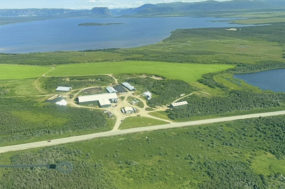One in five hospitalized farm injuries are livestock-related; 33 percent of these injuries are due to cattle. Cattle also are accountable for 16 percent of fatalities on the farm.
Though working with cows is one of the most rewarding parts of dairy farming, it is important to remind yourself of the dangers when working with cattle and how to prevent injury.
- Have an exit plan when entering a pen of animals – even if you know they are friendly. This way, if there’s a turn of events, you know how to quickly and safely escape.
- Know the warning signs of a distressed animal and ensure your employees know the signs as well. Pinned ears, false charges, snorting, head butting and pawing the ground are all signs that the animal is in distress or uncomfortable.
- Train your employees on animal safety and ensure they know which animals have caused problems or have temperament issues.
- Take extra cautions when dealing with fresh cows or cows in heat. Most cattle-related injuries occur when there is a calf present.
- Never put yourself in between rails or pen and the animal. Take caution when giving vaccines, breeding, milking and moving cattle
- Always avoid contact with bulls when possible. If there are bulls being used on-site, have clear, safe operating procedures on dealing with him. Make sure the area is well signed and never work alone.
- Work in pairs when working directly with livestock. If you are working alone, ensure that you have a good working-alone policy and have a system in place in case of injury.
- Wear the proper personal protective equipment when working with cattle. Wearing clothing that can get caught or shoes without steel toes can result in injury.
- Do not forget about any other livestock you have on the farm. Horses, for example, result in 40 percent of livestock-related deaths. It is important to outline who works with what animal and how work should be done.
Aside from physical injury, there are a few other health concerns to consider when working with animals. Zoonotic diseases are diseases that can be transferred from animals to humans.
Things like crypto and ringworm can be passed from animals to people through touch and bio-substances. By maintaining biosecurity and by following the safe operating procedures set for your farm, the potential for these issues entering the farm and coming in contact with you is limited.
All too often, we become comfortable with our surroundings and forget that the work done with large animals is dangerous. By having a plan for working with animals, you are ensuring not just the animals’ safety but also yours and your staff’s. ![]()
Michelle Linington is with PeopleManagement Group Inc. Email Michelle Linington.









